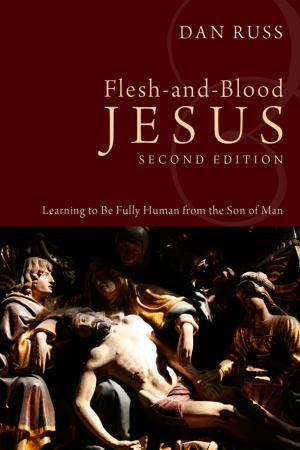The Form and Function of Mark 1:1–15
A Multi-Disciplinary Approach to the Markan Prologue
Nonfiction, Religion & Spirituality, Bible & Bible Studies, New Testament, Criticism & Interpretation| Author: | Bradley T. Johnson | ISBN: | 9781498241748 |
| Publisher: | Wipf and Stock Publishers | Publication: | October 30, 2017 |
| Imprint: | Pickwick Publications | Language: | English |
| Author: | Bradley T. Johnson |
| ISBN: | 9781498241748 |
| Publisher: | Wipf and Stock Publishers |
| Publication: | October 30, 2017 |
| Imprint: | Pickwick Publications |
| Language: | English |
Identifying the "scenes" of written texts is a critical skill for following the course set by an author. Even a small variation in course heading can result in compounding an error over time with regard to one's intended destination. Perhaps nowhere is this more important than in the opening unit of Mark's Gospel. In this book, Brad Johnson sets out to follow the course prescribed by the author of the second Gospel. Making use of the principles of Inductive Bible Study, rhetorical criticism, and a study of ancient prologues, Johnson makes a twofold case that Mark's opening unit (the first fifteen verses) demonstrates a formal integrity and performs a rhetorical function. As such, the Markan prologue situates the public life and ministry of Jesus within the broader context of an epic drama. A failure to acknowledge the unique contribution of Mark as author in this regard will likely result in a destination the author never intended.
Identifying the "scenes" of written texts is a critical skill for following the course set by an author. Even a small variation in course heading can result in compounding an error over time with regard to one's intended destination. Perhaps nowhere is this more important than in the opening unit of Mark's Gospel. In this book, Brad Johnson sets out to follow the course prescribed by the author of the second Gospel. Making use of the principles of Inductive Bible Study, rhetorical criticism, and a study of ancient prologues, Johnson makes a twofold case that Mark's opening unit (the first fifteen verses) demonstrates a formal integrity and performs a rhetorical function. As such, the Markan prologue situates the public life and ministry of Jesus within the broader context of an epic drama. A failure to acknowledge the unique contribution of Mark as author in this regard will likely result in a destination the author never intended.















